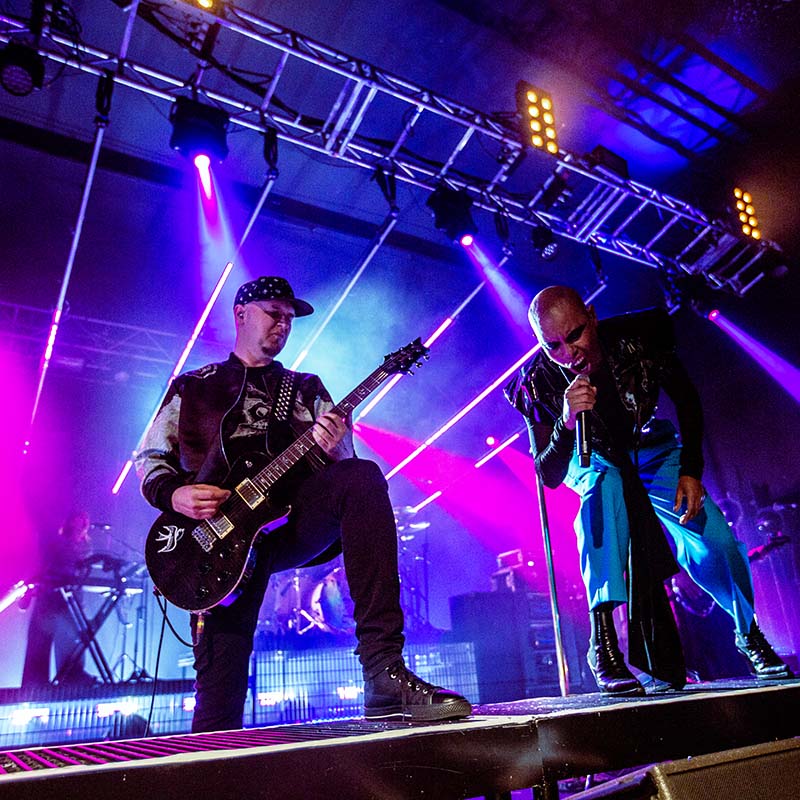5 Tips for Pitching Your Brand
Here are five essential tips for effectively communicating your brand while pitching...
From sending an Electronic Press Kit (EPK) to a venue promoter, to speaking with potential investors, music industry professionals will be in myriad different scenarios over their careers where their communication skills need to shine.
The ability to effectively pitch complex, multi-faceted ideas is an integral skill across the fields of Digital Marketing, Live Events Management, Music Business, and even portfolio careers such as Audio Engineering, Music Performance or Music Production.
Our expert staff and guest lecturers draw from their depth of real-life industry experience to help students develop their own understanding of their respective fields.
While there are industry specific dynamics, we have put together some general tips that can enhance your chances of success across the board of pitching.
Here are five essentials for effectively communicating your brand while pitching.
- Know your audience, speak their language
- Outline your niche and communicate the value you bring
- Navigate the business of your business
- Timing is everything
- Working as a professional musician is more like 90% personality and 10% musical ability
Know your audience, speak their language
We recently welcomed Bump Agency’s founder Robbie Murch to ICMP for a guest lecture with our BA (Hons) Digital Marketing students.
His top tip for students was to research an audience, and shape a pitch (and appearance) accordingly.
Any effective pitches must be contextualised within the dynamics of the pitch audience, their brand values and respective eco-system.
This must then be presented in a way that is both relevant and easily understood by recipients.
Presenting to a fashion brand? Your personal and presentation aesthetic should be well-kept and trendy! They will likely be judging your appearance, ideas and energy.
Meeting with a fin-tech start-up? Maybe your fashion sense will become less important, but you'd better be prepared with financial and market insights! They will likely be judging your business acumen, rationality and use of empirical data.
Excellent pitches will be a combination of aural, emotive, literal, numerical, rational and visual strategies to ensure any communication is effectively received.

Outline your niche and communicate the value you bring
With over a decade as a touring DJ and live performer, RJ Meaney has spent the majority of his adult life pitching musical concepts to label and venue owners.
As an event manager, he is also familiar with being on the receiving end of these communications.
His main advice is to acclimatise yourself to the media-space in which you aim to enter, outline your niche and clearly communicate the value you can add.
In a musical sense, this can entail an EPK, online portfolio, or even physical goods such as records.
Having recently written a series of live performance pieces, I am able to modify the tempo and overall aesthetic of my compositions to accommodate the sonic identity of the respective booking party. This flexibility ensures my pitches remain agile and have the highest possible alignment to the brand (and their respective music policies) that I am contacting."

Navigate the business of your business
As an Associate Professor of Music Industry, Ace has been working in music education for over 25 years. He manages several brands as well as being the guitarist in iconic UK rock band, Skunk Anansie.
It is important to be able to navigate the business of your business. A great portfolio, transferrable skills and multiple income streams are key to this, as well as future-proofing yourself with strategic planning. Think on how you pitch your brand across multiple facets of your own business and how they can work together to create an overall added income stream."
Never forget that you are an extension of your brand. Your own financial stability is an integral base to any successful project!
Be it a business venture or new musical concept, success is as much dependent on a solid foundation as it is having excellent ideas.
When pitching to the client, always remember to think on how you can add value the 'their' business. What's in it for them? Pitch these ideas first before you ask for what you want. Tip: Go for the brands you want: If you end up asking multiple companies for the same thing they will find out and feel non-exclusive."

Timing is everything
Drawing from a breadth of experience in the sector, our BA (Hons) Live Events Management Programme Leader Jamie Johnston says that effectively timing your communications is crucial to success.
Place yourself in the shoes of the recipient of your communications, and plan your deliveries accordingly.
Pitching to an A&R rep? Chances are they will be at a gig on a Friday night.
Pitching to an events manager? Chances are, they work weekends and have time off on Mondays.
Working across various time-zones? Make sure you optimise your delivery so that it falls within their business hours.
Empathise with these realities, and time your deliveries effectively to ensure that your comms are well received.
Working as a professional musician is more like 90% personality and 10% musical ability
As the Programme Leader for our BMus Popular Music Performance course, Ben Jones is acutely aware of the interpersonal attributes needed to thrive in the world of musical performance.
From pitching to performing, the way we treat our colleagues, support staff and potential partners sets the tempo for any project ahead.
It should go without saying, but your first impressions will always be memorable, and they can and will be remembered! Mitigate the risk of this being an unpleasant experience with simple manners. Introducing yourself by name and asking for the name of the sound engineer, producer, stage crew or event staff goes a long way. You don't want to be calling people "mate", "dude" or something even less personable.
Whether it's a A&R session or an office meeting, common courtesy and human empathy goes a long way!
Never forget that you are an extension of your brand, your actions, body language and conduct convey as much as your words.
Conclusion
A final observation is that aside from broad recommendations, one's actions should always be rooted in the context of the brand itself, or as the Digital Marketing Institute put it; "know who you are."
Branding is a highly complex psychological process of communication and perception, it would be reductionist this to say there are binary answers to whether an action or strategy will universally benefit brands. Because of this, what works for one brand, may be totally inappropriate for another.
A brand's public perception is infinitely more susceptible to change than an internal perception held by the brand manager. All managerial actions must align with the external perception of how this brand should be acting, as much as they are defined by those implementing these actions.
At ICMP, our mission of empowering successful and creative futures is achieved through preparing our students to navigate these complexities and nuances within the creative industries.




